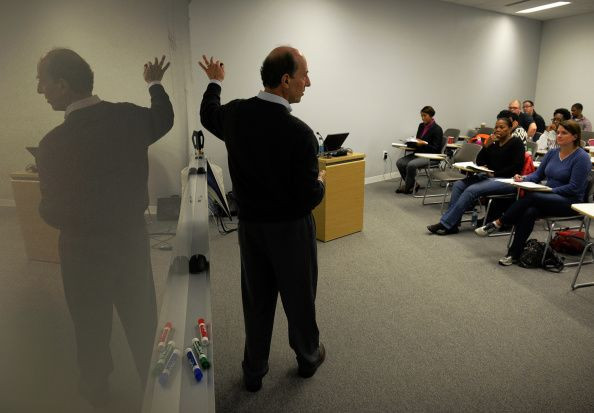National Walkout: Adjunct Professors Protest Low Pay, Lack Of Job Security

Hundreds of adjunct professors rallied on Wednesday in what was billed as the first-ever “national adjunct walkout.” From California to New Jersey, protesting professors drew attention to the low wages, lack of benefits and job insecurity that have come to characterize their status within American academia. Collective bargaining agreements and state laws prevent many adjuncts from going on strike, so teachers and their supporters held rallies, teach-ins and other events instead.
“This thing of paying substandard salaries to teachers is a victimization of people who love what they do,” Karen Hildebrand, a longtime adjunct professor at the State University of New York at Plattsburgh, wrote in the Washington Post. “Ask any musician or actor how many times she or he has been asked to donate a free performance. After all, to the people hiring them, it’s not real work -- it’s fun. It seems people who love what they do are punished for it.”
Adjuncts make up a growing share of higher education’s labor force, as universities and colleges seek to cut costs. With a median salary of $2,700 per three-credit-hour course, according to the American Association of University Professors, they make for a cheap alternative to tenured professors. At that rate, an adjunct who teaches four classes per semester makes around $21,600, which is below the federal poverty line. Although classified as “part-time” employees -- deprived of the sorts of benefits and pay afforded to full-time workers -- professors of this sort now make up more than 50 percent of all faculty nationwide.
The concerns have caused a growing number of adjuncts to seek unionization. Since November, they have voted for union representation at eight institutions. Fifteen thousand part-time teachers at 40 schools joined unions during the 2012-13 academic year, a move that has resulted in modest gains in wages and job stability.
© Copyright IBTimes 2024. All rights reserved.






















